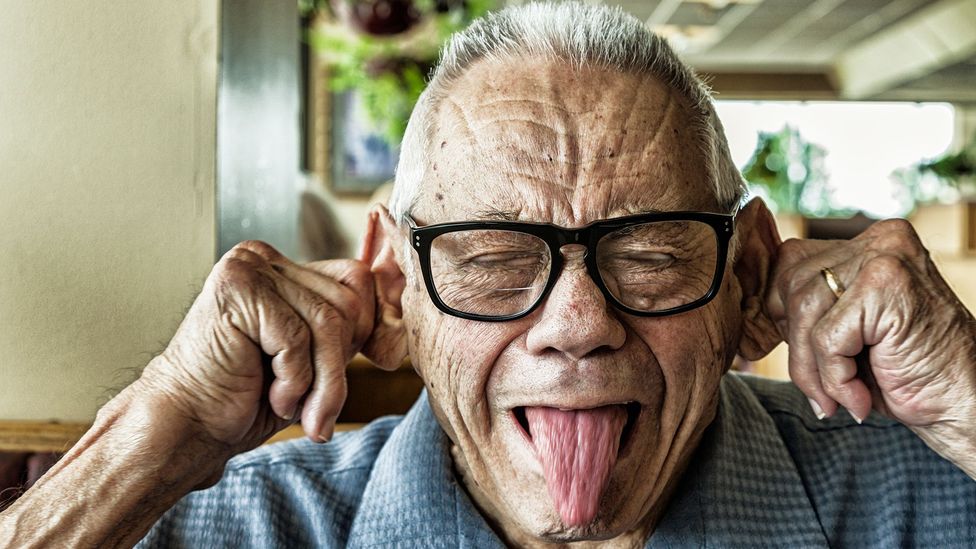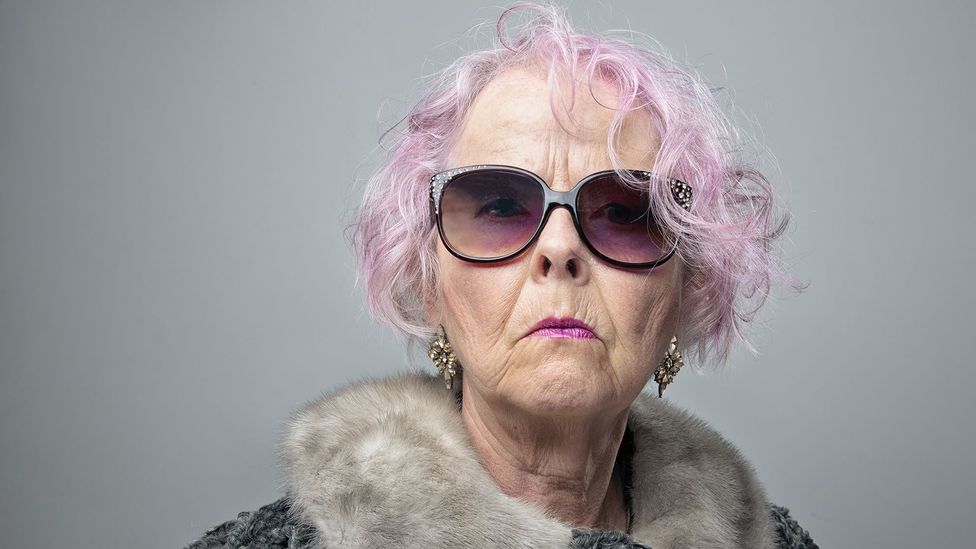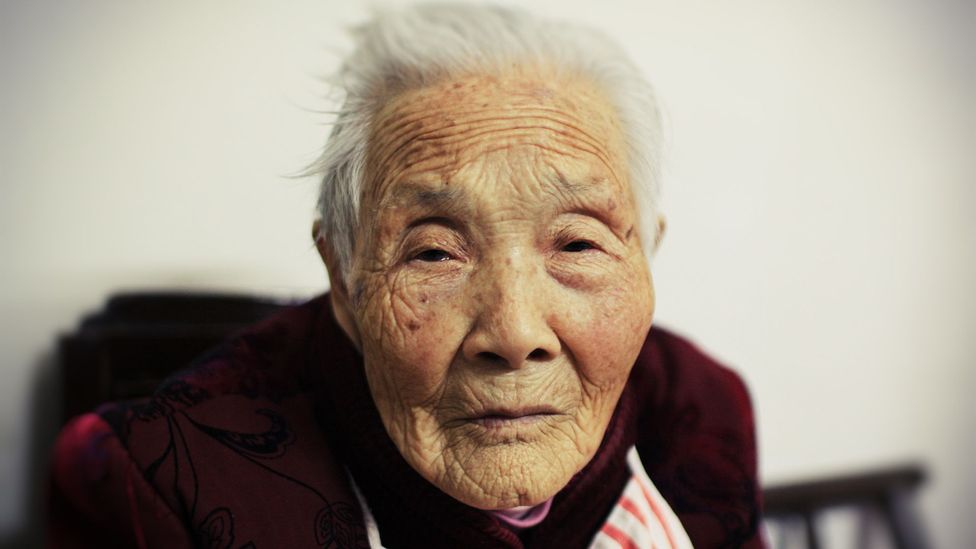Do You Think Even the Worst Person Can Change
How your personality changes as you age
(Prototype credit:
Getty Images
)

Our personalities were long idea to be fixed by the fourth dimension nosotros achieve our 30s, but the latest research suggests they change throughout our lives – and bring some surprising benefits.

"Mr President, I want to enhance an outcome that I think has been lurking out there for two or three weeks and cast information technology specifically in national security terms…" said the journalist Henry Trewhitt, as he locked President Ronald Reagan with a steady, serious gaze.
It was October 1984 and Reagan was on the debating circuit, battling to remain in office for a 2nd term. He had already performed poorly against his chief rival a few weeks earlier. At present there were whispers that, at 73 years onetime, he was only too onetime for the job.
Afterwards all, at the time, Reagan was already the oldest United states of america President in history. His predecessor had gone for days without sleep during the Cuban missile crisis. Trewhitt wanted to know: did Regan have any doubts that he could function in such circumstances?
You might also like:
● The hobby that helps you alive to 100
● Could eating carbs help us live longer
● Why you are only every bit old every bit you lot feel
"Non at all, Mr Trehwitt," replied Reagan, property back a smiling. "And I desire yous to know that likewise I will not make historic period an consequence of this entrada – I am not going to exploit, for political purposes, my opponent's youth and inexperience." His response was met with raucous laughter and applause – and preceded a landslide victory in the ballot.

Ronald Regan was the oldest US President in history when he ran for a 2d term in 1984 (Credit: Getty Images)
Reagan'due south quip, yet, held more truth than he knew. He didn't merely accept experience on his side, he would too have had a "mature personality".
We're all familiar with the physical transformation that ageing brings: the skin loses its elasticity, the gums recede, our noses abound, hairs sprout upwardly in peculiar places – while also disappearing entirely from others – and those precious inches of height to which nosotros cling first to slink away.
Now, subsequently decades of inquiry into the furnishings of ageing, scientists are uncovering another, more mysterious change.
"The decision is exactly this: that we are non the aforementioned person for the whole of our life," says René Mõttus, a psychologist from the Academy of Edinburgh.
Most of us would like to remember of our personalities as relatively stable throughout our lives. Simply research suggests this is non the case. Our traits are e'er shifting, and past the time we're in our 70s and 80s, we've undergone a significant transformation. And while nosotros're used to couching ageing in terms of deterioration and refuse, the gradual modification of our personalities has some surprising upsides.
We become more conscientious and agreeable, and less neurotic. The levels of the "Nighttime Triad" personality traits, Machiavellianism, narcissism, and psychopathy also tend to go down – and with them, our take a chance of antisocial behaviours such every bit offense and substance abuse.
Research has shown that we develop into more altruistic and trusting individuals. Our willpower increases and we develop a better sense of humor. Finally, the elderly have more than control over their emotions. It's arguably a winning combination – and i which suggests that the stereotype of older people as grumpy and curmudgeonly needs some revision.
Far from beingness fixed in childhood, or effectually the age of 30 – equally experts idea for years – it seems that our personalities are fluid and malleable. "People get nicer and more socially adapted," says Mõttus. "They're increasingly able to balance their own expectations of life with societal demands."

While our personalities are constantly changing, they practice so relative to those around u.s. (Credit: Getty Images)
Psychologists call the procedure of change that occurs every bit we historic period "personality maturation". It'south a gradual, imperceptible change that begins in our teenage years and continues into at least our eighth decade on the planet. Intriguingly, it seems to exist universal: the tendency is seen beyond all human being cultures, from Guatemala to India.
"More often than not it'south controversial to put value judgments on these personality changes," says Rodica Damian, a social psychologist at the University of Houston. "But at the same fourth dimension nosotros do have evidence that they're benign." For example, low emotional stability has been linked to mental health bug, higher mortality rates, and divorce. Meanwhile, she explains that the partner of someone with high conscientiousness will probably be happier, considering they're more likely to do dishes on time, and less likely to cheat on their partner.
It would be reasonable to think that this continual process of alter would make the concept of personality fairly meaningless. But that's not entirely true. That's because there are two aspects to personality change: boilerplate changes, and relative changes. Information technology turns out that, while our personalities shift in a certain direction equally we age, what nosotros're similar relative to other people in the same age group tends to remain fairly stable.
For example, a person's level of neuroticism is likely to go down overall, but the most neurotic 11-yr-olds are generally still the most neurotic 81-year-olds. These rankings are our nearly enduring characteristics, and distinguish usa from everyone else.
"There is a core of who we are in the sense that we do maintain our rankings relative to other people to some extent," says Damian. "Only relative to ourselves, our personalities are not set in stone – we can change."
How do these personality changes develop? "This is the big debate in the field," says Mõttus.
Considering personality maturation is universal, some scientists retrieve that far from being an accidental side-effect of having had longer to larn the rules, the means our personalities change might exist genetically programmed – perchance even shaped by evolutionary forces.
On the other hand, some think that our personalities are partly forged by genetic factors, then sculpted by social pressures over the course of our lives. For example, inquiry past Wiebke Bleidorn, a personality psychologist at the University of California, Davis, found that, in cultures where people were expected to grow up more quickly – get married, start working, have developed responsibilities – their personalities tend to mature at a younger age.
"People are just kind of forced to alter their behaviour and, over time, to become more than responsible. Our personalities change to help us cope with life'south challenges," says Damian.
But what happens when we reach very old age?

Those with higher self-control are more likely to exist healthy in later on life (Credit: Getty Images)
In that location are 2 possible ways to study how nosotros change over our lifespan. The first is to take a big group of people of lots of dissimilar ages, and and then look to see how their personalities are different. Ane problem with this strategy is that it is easy to accidentally mistake generational traits that have been sculpted by the culture of a particular time period – such every bit prudishness or an inexplicable adoration of custard creams and sherry – for changes that occur every bit you lot age.
The alternative is to take the same group of people and follow them as they grow up.
This is exactly what happened with the Lothian Birth Accomplice – a grouping of people who had their personality traits and intelligence examined in June 1932 or June 1947, when they were notwithstanding at school. At the time, they were around eleven years sometime. Together with colleagues from the University of Edinburgh, Mõttus tracked downwards hundreds of the same people when they were in their 70s or 80s, and gave them two more identical tests, several years apart.
"Because nosotros had two dissimilar cohorts of people, and both of them were measured at two occasions, we were able to utilise both strategies at in one case," says Mõttus. This was lucky, because the results were remarkably dissimilar for the two generations.
While the younger group'south personalities remained more or less the same overall, the older group'due south personality traits brainstorm to shift, so that on average, they became less open and extraverted, likewise every bit less agreeable and conscientious. The beneficial changes that had been occurring throughout their lives started to reverse.
"I remember this makes sense, considering in onetime age things start happening to people at a faster footstep," says Mõttus, who points out that these people's health might have been in decline, and they're likely to have started losing friends and relatives. "This has some bear upon on their active appointment with the world."
No one has withal looked at whether this tendency would keep into our 100s. Research into Japanese centenarians has found that they tend to score highly for conscientiousness, extraversion, and openness, only they may have had more than of these characteristics to begin with – mayhap this even contributed to their longevity.

Agreement how sure personality traits are linked to health could help predict adventure of affliction (Credit: Getty Images)
In fact, our personalities are intrinsically linked to our wellbeing as we age. For example, those with higher self-control are more likely to be healthy in later life, women with college levels of neuroticism are more likely to experience symptoms during the menopause, and a degree of narcissism has been associated with lower rates of loneliness, which itself is a risk factor for an earlier death.
In the hereafter, understanding how certain traits are linked to our health – and how we can expect our personalities to evolve throughout our lifespan – might help to predict who is almost at risk of certain health issues, and intervene.
Simply there's some other do good to the research. "I was just giving a talk in a prison yesterday," says Mõttus. "There was i question they were really interested in: do people alter at all? Well the big-picture show finding is that yep, they do." This means that, as far as he is concerned, there isn't whatsoever strong show to suggest that people tin utilise their personality every bit an excuse for their behaviour.
The cognition that our personalities alter throughout our lives, whether we want them to or not, is useful evidence of how malleable they are. "Information technology'southward important that nosotros know this," says Damian. "For a long fourth dimension, people idea they didn't. Now nosotros're seeing that our personalities tin adapt, and this helps united states to cope with the challenges that life throws at united states of america."
If aught else, it gives u.s. all something to wait forwards to every bit nosotros get older, and observe out who nosotros volition become.
--
Join i one thousand thousand Hereafter fans past liking u.s. on Facebook , or follow united states on Twitter or Instagram .
If you lot liked this story, sign upwardly for the weekly bbc.com features newsletter , called "The Essential List". A handpicked selection of stories from BBC Future, Culture, Worklife, and Travel, delivered to your inbox every Friday.
Source: https://www.bbc.com/future/article/20200313-how-your-personality-changes-as-you-age
0 Response to "Do You Think Even the Worst Person Can Change"
Post a Comment